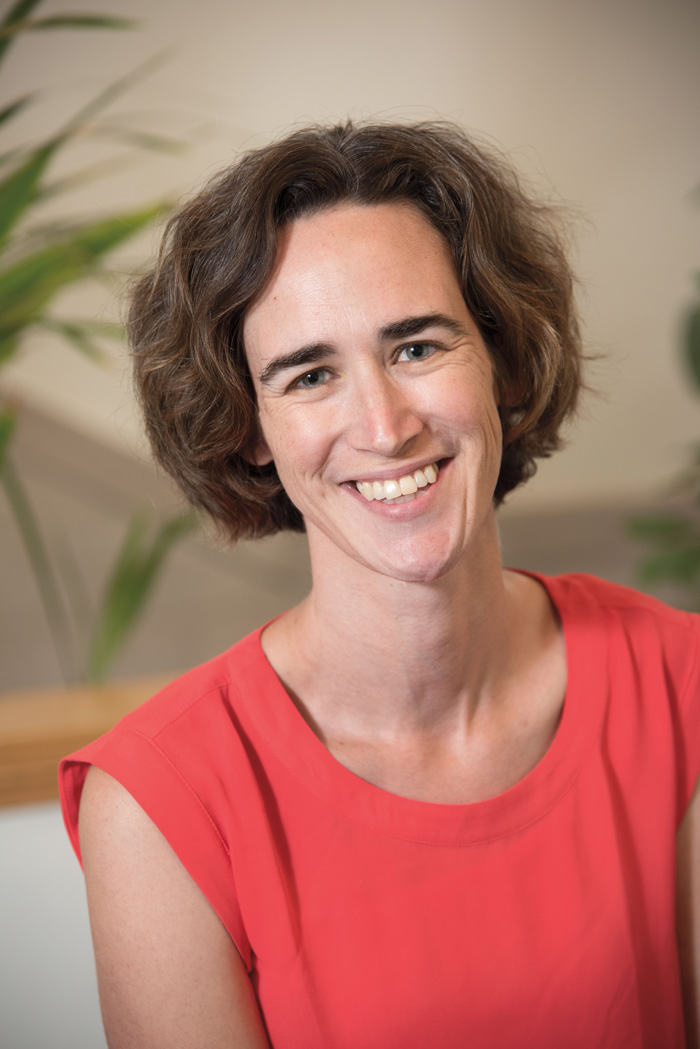How Can Schools Create Ideal Environments for Teaching and Learning?

How Can Schools Create Ideal Environments for Teaching and Learning?
Eve Manz works with elementary school teachers to support engaging science learning
Eve Manz is assistant professor of science education at Boston University Wheelock College of Education & Human Development. A former elementary teacher, Manz works with elementary teachers to design rich and rewarding learning environments that capitalize on children’s curiosities, concerns, and ways of thinking to support disciplinary engagement. Manz was recently appointed to the National Academy of Science and Engineering’s Committee on Enhancing Science in Prekindergarten through Fifth Grade.
What research have you been working on?
The work I’ve been doing in my NSF-funded CAREER grant, Building Productive Uncertainty into Elementary Science Investigations, focuses on how to redesign the elementary school science investigation so that it affords students access to the uncertainty, excitement, and conceptual richness of scientists’ experiences with investigations. Typically, when we engage young children in science experiments in the classroom, we simplify the investigation so that it demonstrates an understanding we want students to develop and ask students to practice skills such as controlling variables or supporting a claim with two pieces of data.
The problem with this approach is that it removes the fundamental uncertainty that drives science. Scientists explain because they are unsure. They argue with, and about, evidence because they disagree. My research focuses on understanding how forms of uncertainty about how to design investigations, what to measure, what to use as evidence, and how to generalize from an investigation to a complex world can be productive resources for children and teachers in elementary classrooms.
What is an implication of this work?
The project provides images of what young people are capable of in science and what it looks like for children to engage in sense-making about investigation design, data, and evidence. It also provides tangible design principles and structures that curriculum developers, other researchers, and teachers can use in their classrooms. I intentionally work with teachers in socio-economically, linguistically, and culturally diverse settings so that we can hold our work accountable to the resources and needs of children and teachers in these settings. And I engage teachers in scoping problems of practice, developing materials, analyzing the results, and developing professional learning experiences for other teachers in the district. The goal is to develop images of learning, principles, and curricular materials that are powerful and doable for other teachers.
A major implication is that we can design for young children to engage in science in meaningful and critical ways from the earliest years of schooling. I begin by seeking to understand the practices and conceptual resources they bring to instruction, then design for those to be predictably elicited so that young children can begin their experience with science investigations as critical thinkers, designers, and sense-makers. It just takes careful work on our part.
Why is this important?
The imperative to make the time for children to engage in science and develop materials that allow children and teachers to engage productively and critically in science has always been present, but we can see now more than ever the importance of this work. Over the past several months, we have witnessed in a way we haven’t before how scientists change their understandings as they design and critique investigations, and as new information comes to light. They argue over the implications of findings (whether fragments of mRNA on surfaces indicate that we should quarantine our mail) and which measures of test positivity rates should be used as the key public health indicator. And they make progress through this argumentation and revision. Developing scientific literacy involves understanding that this uncertainty and argumentation is the work of science and also being able to critique the way that scientific findings may be overgeneralized.